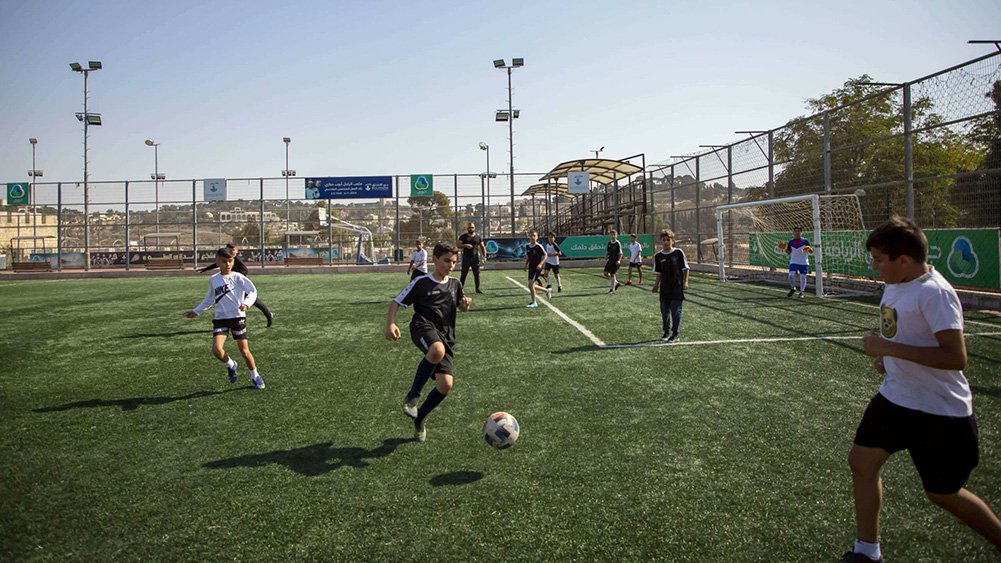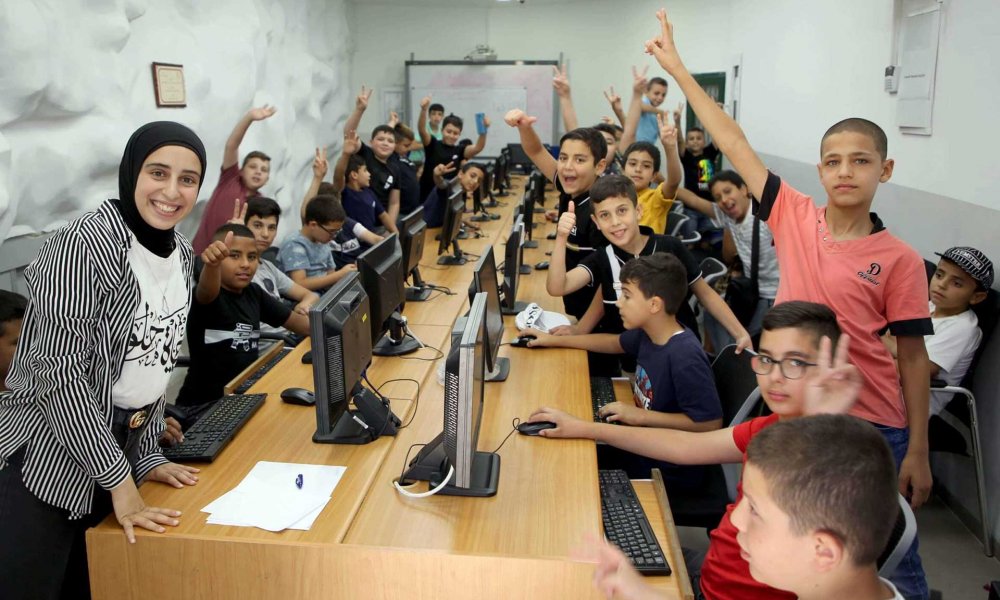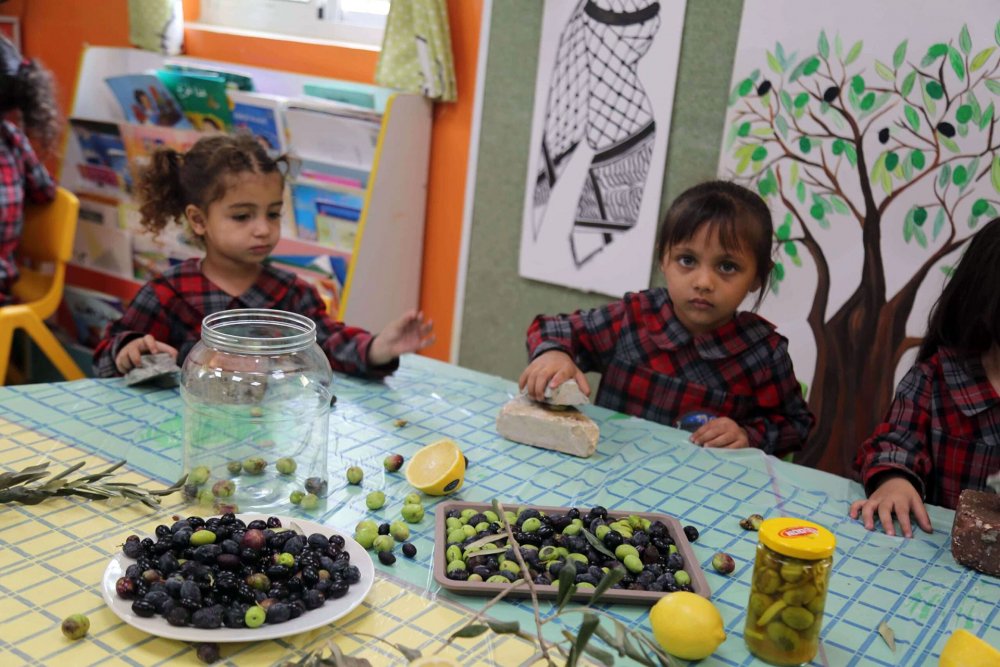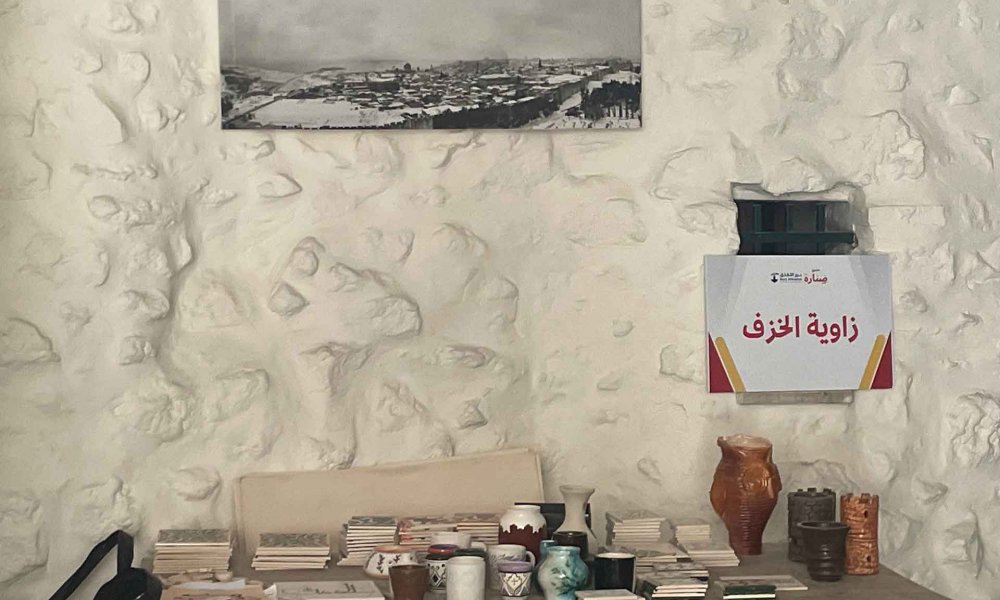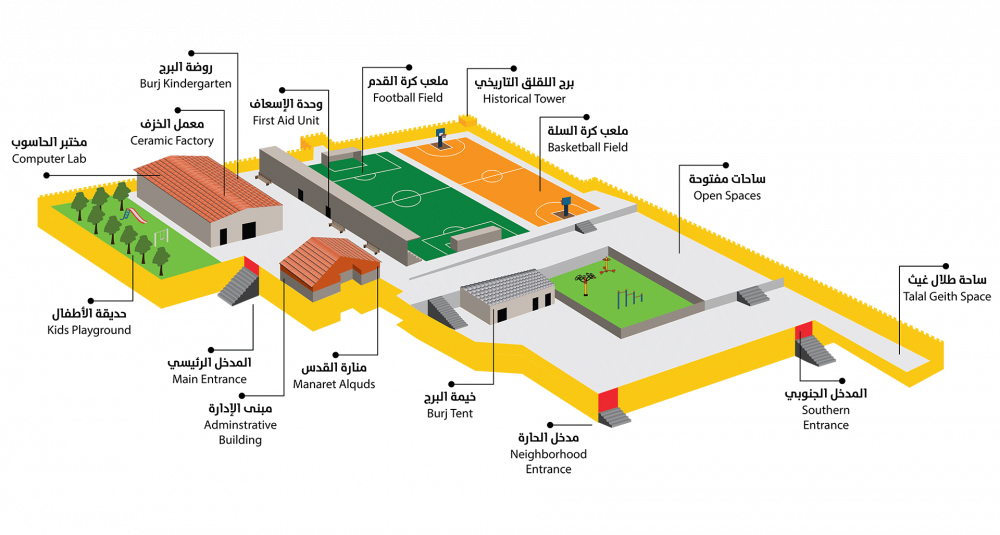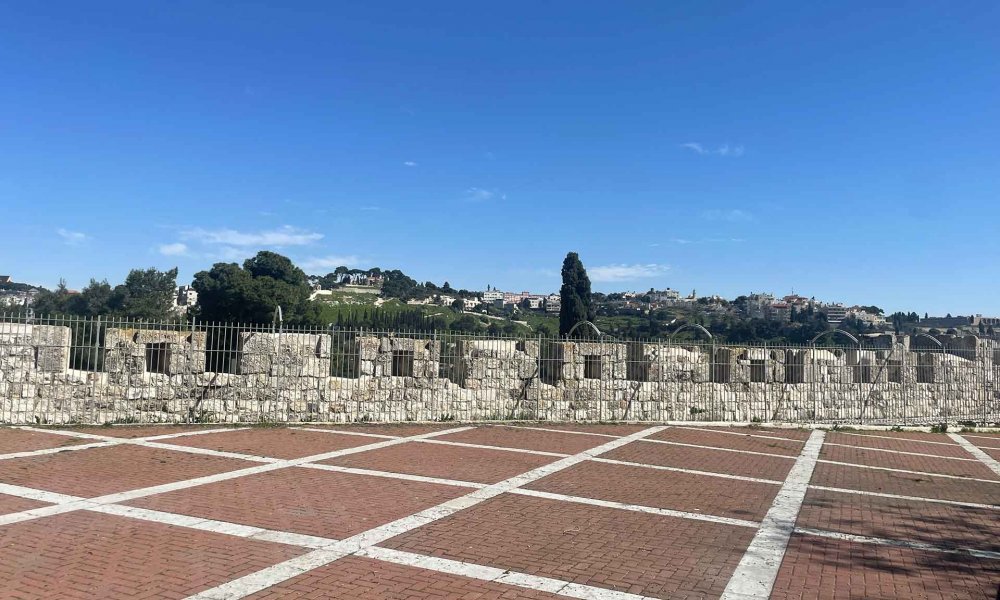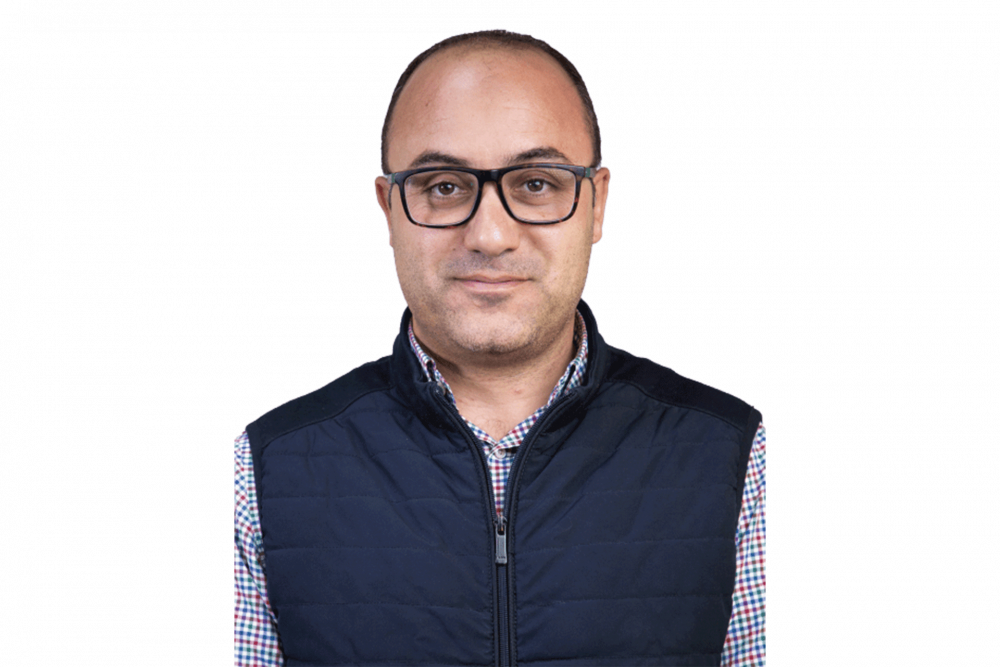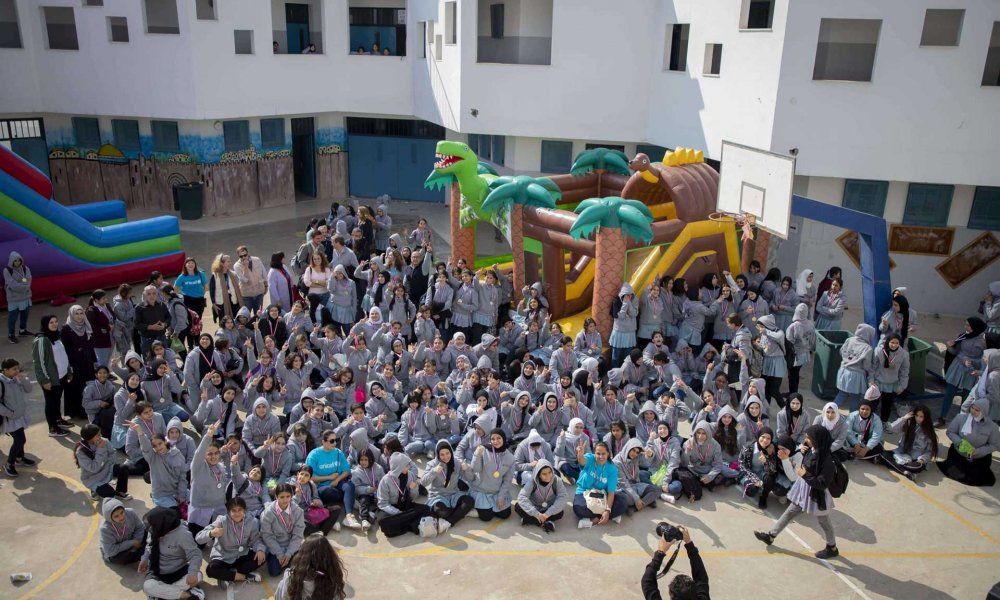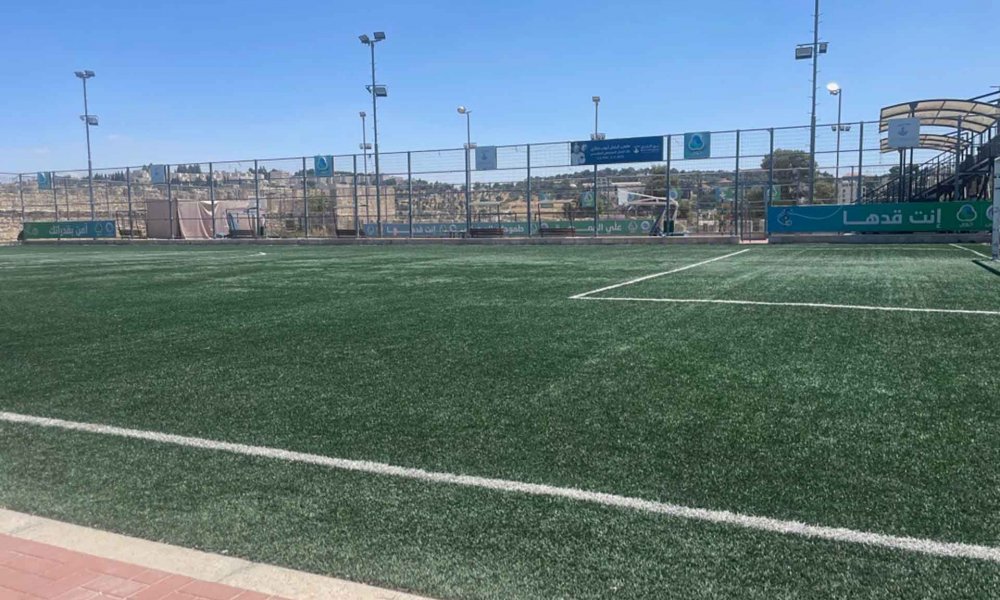Tucked in the Bab Hutta neighborhood of the Old City of Jerusalem sits Burj al-Luqluq, one of the very few Palestinian cultural organizations still functioning within the ancient walls. Located in a generally confined area, it offers a space (9.5 dunums, a little over 2 acres—an area second only to the al-Haram al-Sharif compound in size) for sports, educational, and social activities, mostly for children. Its 500-square-meter garden provides an inviting space for the community to come together. From its grounds, one enjoys a spectacular view of the city.
Over the years, the center has had to contend with Israeli settler groups that have had their eyes on the valuable real estate for a settlement; the Jerusalem municipality, which has plans to establish Jewish-only housing on part of the property; and the Israeli Antiquities Association, which in 2023 blocked the organization from repairing a collapsed wall on the grounds that the site might contain historical artifacts.1 Its ability to withstand the pressure and continue to serve its community for more than three decades stands testimony to the spirit of persistence and identity preservation in the face of challenges.

